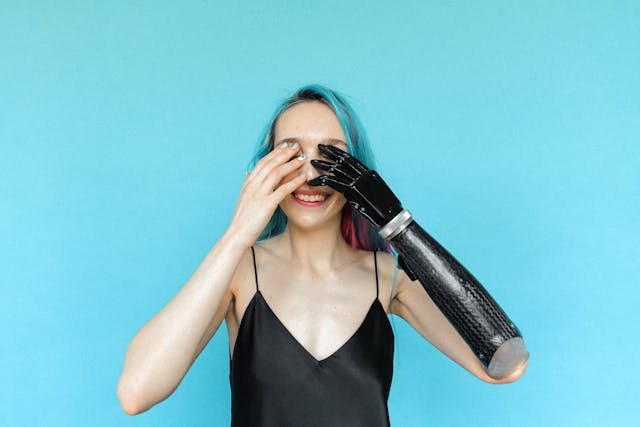In today’s world, stories of resilience and determination often find their way into the media, inspiring millions. Among these narratives, the journeys of real-life amputees stand out, showcasing the indomitable human spirit. This article delves into the lives of some of the most inspirational amputees who have been prominently featured in the media.
Bethany Hamilton: Riding the Waves of Resilience
Bethany Hamilton’s story is a testament to unwavering determination. Born on February 8, 1990, in Lihue, Hawaii, Bethany began surfing at a young age, quickly making a name for herself in the surfing community. However, at the age of 13, her life took a dramatic turn when she survived a shark attack that resulted in the loss of her left arm.
Despite this life-altering event, Bethany’s passion for surfing remained unshaken. Remarkably, she returned to the waves just one month after the incident, adapting her technique to accommodate her new reality. Her resilience and dedication led her to continue competing professionally, inspiring many with her story of courage.
Bethany’s journey garnered significant media attention, leading to the publication of her autobiography, “Soul Surfer: A True Story of Faith, Family, and Fighting to Get Back on the Board,” in 2004. This memoir was later adapted into the 2011 feature film “Soul Surfer,” bringing her inspiring story to a global audience. Beyond surfing, Bethany has been involved in various charitable efforts, including her foundation, Friends of Bethany, which supports amputees and youth, encouraging them to overcome challenges through faith and resilience.
Josh Sundquist: Turning Adversity into Humor and Motivation
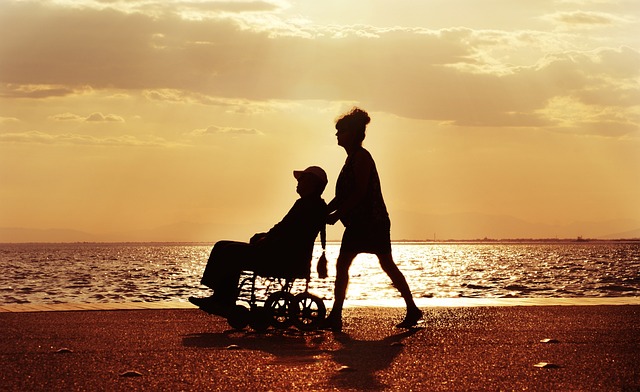
Josh Sundquist’s life exemplifies how adversity can be transformed into motivation and humor. Born on August 6, 1984, Josh was diagnosed with Ewing’s sarcoma, a rare form of bone cancer, at the age of nine, leading to the amputation of his left leg.
Undeterred, Josh pursued competitive skiing and became a member of the U.S. Paralympic Ski Team, competing in the 2006 Paralympics in Turin, Italy. His athletic achievements, however, are just a part of his multifaceted career. Josh channeled his experiences into motivational speaking, authoring memoirs like “Just Don’t Fall,” and venturing into comedy, where he uses humor to address his life as an amputee.
His unique blend of comedy and motivation has been widely featured in the media, inspiring audiences to view challenges through a lens of positivity and resilience. Josh’s ability to connect with people through his storytelling and humor has made him a prominent figure in both motivational and entertainment circles.
Tilly Lockey: Embracing Technology to Redefine Ability
Tilly Lockey’s journey showcases the intersection of technology and resilience. Born on October 7, 2005, Tilly contracted meningococcal septicaemia as a baby, leading to the amputation of both her arms.
Embracing her circumstances, Tilly became known for her bionic arms developed by Open Bionics, which she has used since 2016. These advanced prosthetics have enabled her to perform various tasks, from picking up small objects to playing video games, effectively redefining perceptions of ability.
Tilly’s story has been widely covered in the media, highlighting how technological advancements can empower individuals with disabilities. Her active presence on social media, where she shares her experiences and advocates for inclusivity, has made her a role model for many, demonstrating that physical limitations do not define one’s potential.
Zainab Al-Eqabi: Advocating for Disability Rights in the Middle East

Zainab Al-Eqabi’s life is a powerful narrative of advocacy and empowerment. Born on August 19, 1990, in Baghdad, Iraq, Zainab’s life changed dramatically in 1997 when an undetonated bomb exploded in her family’s garden, leading to the amputation of her leg.
Undeterred by her injury, Zainab pursued a degree in pharmacy and later became a prominent para-athlete and television presenter. She established a Facebook group titled “Disabled and Proud” to combat the stigma against disabled people in the Middle East, using her platform to advocate for disability rights and inclusivity.
Zainab’s efforts have been widely recognized in the media, and she has amassed a significant following on social media platforms. Her story underscores the importance of representation and advocacy, inspiring many to challenge societal norms and promote inclusivity for people with disabilities.
Cameron Clapp: Triumphing Over Tragedy Through Athletics
Cameron Clapp’s story is one of remarkable transformation and resilience. Born on February 18, 1986, Cameron lost both his legs and an arm in a train accident at the age of 15.
Instead of succumbing to despair, Cameron embraced athletics, participating in various competitions for amputees. He became a motivational speaker, sharing his journey to inspire others facing similar challenges. His story has been featured in media outlets, highlighting his athletic achievements and his role as a mentor to young amputees.
Cameron’s journey emphasizes the power of resilience and the human capacity to overcome significant obstacles, serving as an inspiration to many.
Jo Beckwith: Sharing the Amputee Experience Through Digital Platforms

Jo Beckwith, widely recognized as “Footless Jo”, has used digital media to redefine amputee storytelling. After enduring years of chronic pain from a horseback riding accident, she made the difficult decision to amputate her leg below the knee. Instead of letting this define her life negatively, Jo turned to YouTube and social media to document her journey.
Embracing Vulnerability and Storytelling
Jo’s content is deeply personal, offering a raw and honest look into life as an amputee. She shares everything from prosthetic fittings and physical therapy to the mental and emotional struggles of limb loss. Her openness has created a space where others with disabilities can find support and reassurance, knowing they are not alone in their experiences.
Using Digital Platforms for Advocacy
Beyond personal storytelling, Jo educates the public about limb loss, prosthetic technology, and disability rights. She tackles misconceptions about amputees, challenges inspiration-porn narratives, and discusses the importance of accessibility in daily life.
Her social media platforms have grown into a thriving community where people—both disabled and non-disabled—can engage in real conversations about disability. By reaching millions of viewers, Jo has played a key role in changing societal perceptions about amputees.
The Power of Representation in Digital Media
Jo’s success highlights the power of digital advocacy. Traditional media often overlooks real-life amputees, but platforms like YouTube and TikTok allow individuals like Jo to control their own narrative. Her journey proves that representation matters, and when real stories are shared authentically, they drive meaningful change.
Aimee Mullins: Redefining Beauty, Athletics, and Disability Representation
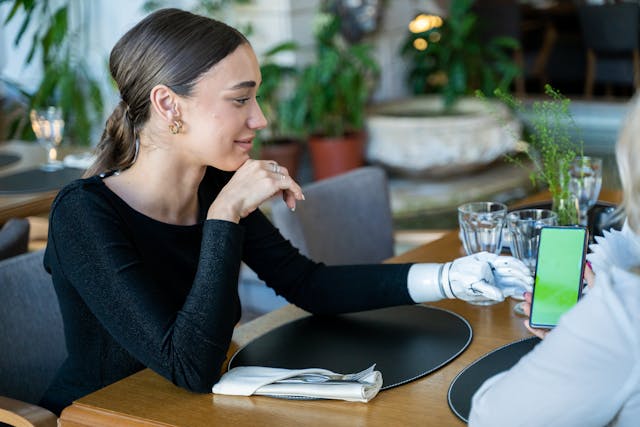
Aimee Mullins is an athlete, actress, model, and speaker who has revolutionized the way society views disability and prosthetic limbs. Born with a medical condition that resulted in the amputation of both her legs below the knee, Aimee has spent her life proving that disability is not a limitation, but an opportunity for reinvention.
Breaking Barriers in Athletics
Aimee first gained recognition as a Paralympic athlete. Competing in track and field, she used advanced prosthetic running blades, setting multiple records. Her success in sports shattered stereotypes about what amputees could achieve and paved the way for greater inclusion in athletics.
Transforming the Fashion and Entertainment Industry
Beyond sports, Aimee stepped into the world of modeling and entertainment, challenging traditional beauty standards. She became the first double amputee to walk the runway, proving that prosthetic limbs could be both functional and artistic.
Aimee has also appeared in films, television, and TED Talks, using her platform to promote inclusivity and self-acceptance. Her prosthetics are often customized for aesthetics and performance, demonstrating that they can be a form of self-expression, not just a medical necessity.
Inspiring the Next Generation of Amputees
Aimee’s career proves that disabled individuals can thrive in multiple industries. She encourages young amputees to embrace their uniqueness and see their prosthetics as an asset, not a setback. Through her public speaking and advocacy, she has transformed the conversation around disability, showing that true empowerment comes from embracing individuality.
Hugh Herr: The Scientist Who Rebuilt Himself
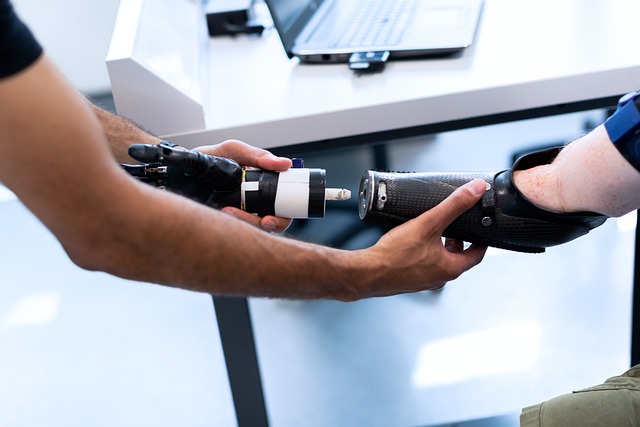
Hugh Herr is a pioneering scientist, engineer, and double amputee who has revolutionized prosthetic technology. After losing both legs to frostbite in a mountaineering accident, he refused to accept the limitations of traditional prosthetics. Instead, he designed his own bionic limbs—ones that would allow him to climb again and move beyond disability.
Inventing the Future of Prosthetic Technology
Hugh is now a leading scientist at MIT, where he develops cutting-edge prosthetic limbs and exoskeletons. His work focuses on creating bionic legs that move, feel, and function like natural limbs. By integrating robotics, artificial intelligence, and neuromuscular signals, he has helped create prosthetics that restore near-natural movement.
Bridging the Gap Between Man and Machine
Hugh’s research blurs the line between biology and technology. He believes that disability should not exist in the future, as advancements in bionics can restore mobility in ways once thought impossible. His work has been featured in documentaries, news specials, and science conferences, proving that prosthetics are not just replacements but enhancements.
A Vision for a More Inclusive World
Beyond his inventions, Hugh is an advocate for accessibility and human augmentation. He envisions a future where technology allows people with disabilities to surpass even able-bodied limits. His story shows that when science and determination come together, there are no true barriers to mobility.
Nick Santonastasso: Turning Disability into Strength
Nick Santonastasso is a motivational speaker, bodybuilder, and social media influencer who was born with Hanhart syndrome, a rare condition that left him with one arm and no legs. Despite these challenges, he has built a career focused on self-discipline, confidence, and inspiring others to push past their limits.
Defying Expectations Through Fitness
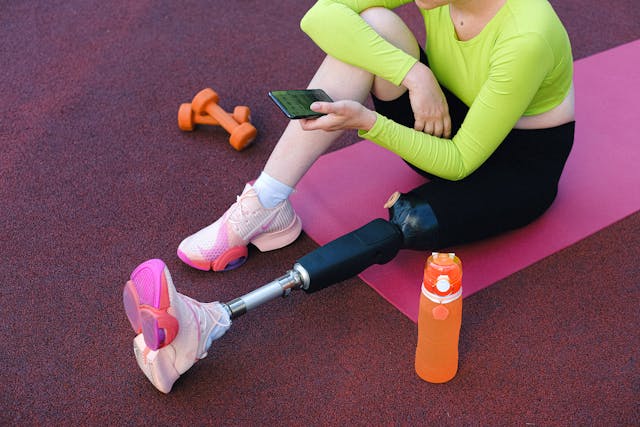
Nick’s journey into bodybuilding and fitness has challenged stereotypes about physical ability. He shares videos of himself lifting weights, training hard, and proving that strength is about mindset, not just muscle. His dedication to fitness has inspired many to rethink what disabled bodies are capable of.
Viral Sensation and Motivational Speaker
Nick’s content has gone viral on TikTok, YouTube, and Instagram, where he motivates people to overcome obstacles and take control of their lives. His speeches focus on resilience, self-worth, and the power of perseverance, making him a sought-after public speaker for businesses, schools, and leadership events.
Redefining Disability in the Digital Age
Nick represents a new era of disability advocacy, where social media provides a platform for empowerment and visibility. By sharing his workouts, motivational talks, and daily life, he encourages others to pursue their dreams fearlessly, regardless of physical limitations.
Final Thoughts: The Power of Representation
The stories of these real-life amputees have transformed the way society sees disability. Through sports, science, media, fashion, and social activism, they have proven that limb loss does not define a person’s potential.
At Robobionics, we believe in advancing prosthetic technology to support individuals in achieving their goals. As these figures continue to inspire millions, their impact extends beyond their personal achievements—it paves the way for a world where disability is no longer seen as a limitation but as a different path to success.
The next time you see an amputee featured in media, remember—their story is not just about survival. It’s about innovation, determination, and rewriting what’s possible.



